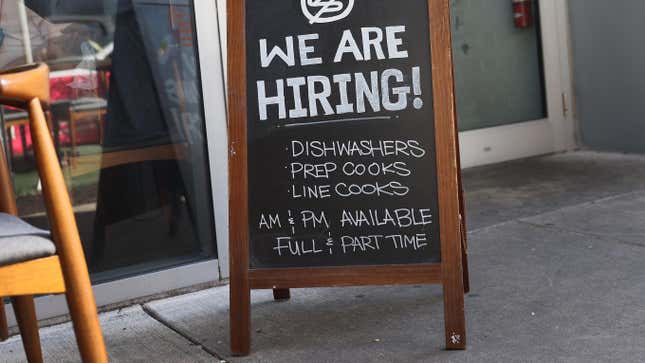Joe Biden Wouldn't Take Your Crappy Low-Paying Service Jobs Either
Politics

How many stories have you read lately about restaurant owners bemoaning the fact that they can’t find employees for their shitty, often part-time jobs that often come with no benefits? These restauranteurs, whose woe-is-me stories have been lifted up by Republican leaders eager to cast a modest level of government support as the evils of socialism, tend to blame the same culprit. Their trouble finding workers, they say, isn’t due to more valid factors, like the fact that women are still struggling to find childcare or the reality that people still living through a pandemic aren’t willing to put their health on the line to be paid in measly tips in a terrible job where they’re not provided health insurance. No, to these suffering business owners, enhanced unemployment benefits are too high, and higher than the wages they pay their workers.
Perhaps the solution to this “problem” is pay people a living wage and improve working conditions? Just some free advice from a former waiter!
-

-

-

-

-

-

-

-

-

-

-

-

-

-

-

-

-

-

-

-

-

-

-

-

-

-

-

-

-

-

-

-

-

-

-

-

-

-

-

-








































